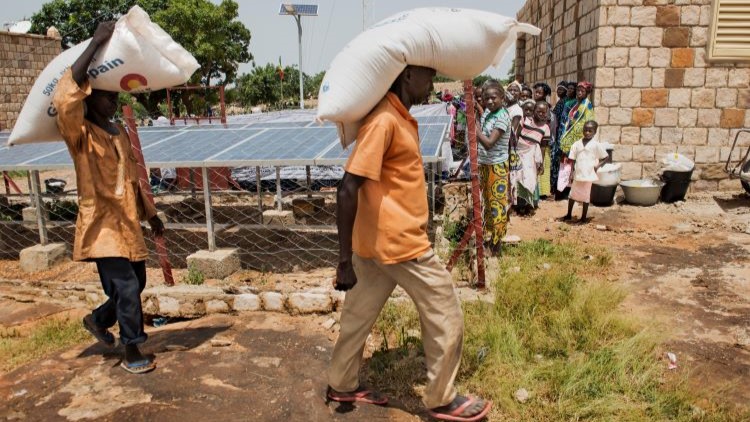Eduardo González
The Spanish Agency for International Development Cooperation (AECID), ten autonomous communities and the Spanish Federation of Municipalities and Provinces (FEMP) will contribute a total of 2.5 million euros this year to finance humanitarian action initiatives for the populations of Palestine, Syria, Sudan, Mali and the Saharawi camps in Tindouf.
This contribution was agreed this week within the framework of the new agreement between Decentralized Cooperation and AECID for joint and coordinated action in humanitarian action. The AECID, the autonomous communities of Galicia, Andalusia, Asturias, Cantabria, Valencia, Castilla-La Mancha, Canary Islands, Extremadura, Balearic Islands and Castilla y León and the FEMP, which joins this instrument as a full member, are part of this agreement.
This year, all the signatory autonomous communities are contributing a total of one million euros and the AECID is contributing 1.57 million (almost 600,000 euros more than in the previous year). In total, 2.5 million euros have been programmed for the 2023 fiscal year.
The Palestinian population will be one of the beneficiaries, with a contribution of 500,000 euros to the 2023 International Committee of the Red Cross (ICRC) Appeal for Israel and the Occupied Palestinian Territories, in the context of the emergency generated by the current escalation of violence in Gaza.
The situation of the population affected by last February’s earthquakes in northwest Syria is another scenario. Spanish cooperation will contribute 500,000 euros to the cross-border fund managed by the United Nations Office for the Coordination of Humanitarian Affairs (OCHA) in Syria, as a response mechanism to the humanitarian consequences of the earthquake.
Similarly, the member institutions of the agreement will contribute 500,000 euros to the United Nations High Commissioner for Refugees (UNHCR) Emergency Appeal to alleviate the serious situation in Sudan. The initiative contemplates interventions in Sudan and neighboring countries, which have been receiving the Sudanese refugee population since the outbreak of the current armed conflict in April.
Likewise, in the line of feminist cooperation that guides Spanish humanitarian action, support will be given to an intervention by the United Nations Population Fund (UNFPA) in Mali, focused on the emergency response in the area of sexual and reproductive health and sexual and gender-based violence in this Sahel country. Finally, AECID, the Autonomous Regions and the FEMP have decided to renew their support for the World Food Program’s (WFP) Interim Strategic Plan for Algeria, focused on the food security and nutrition response in the Saharawi camps in Tindouf.
The new Decentralized Cooperation Agreement, the first under the Law on Cooperation for Sustainable Development and Global Security approved in February of this year, entered into force on November 15. This is the third agreement of this nature, after those of 2015-2018 and 2018-2022.
The objective of this agreement – published last November 24 by the Official State Gazette (BOE) and which will be valid for four years – is to regulate the cooperation of the signatory parties in matters of humanitarian action and, specifically, the establishment of the specific purposes of such coordination, as well as the financial commitments assumed by them. To date, thanks to this instrument, the AECID and the autonomous communities involved have allocated more than 13 million euros to different protracted humanitarian crises and emergencies.






